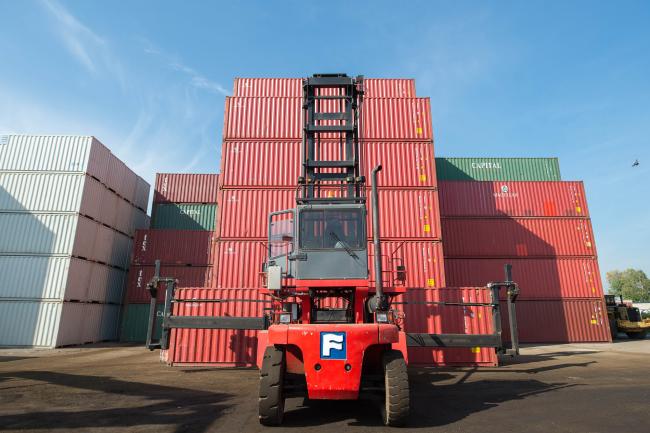(Bloomberg) -- A Nafta deal doesn’t look likely this week.
Talks between the U.S. and Canada have seemed upbeat, but are not expected to lead to a deal this week, a Canadian government official said, speaking on condition of anonymity.
The pace of meetings between U.S. Trade Representative Robert Lighthizer and Canadian Foreign Minister Chrystia Freeland has slowed since last week, as both countries look to be squaring off. The Trump administration gave notice Aug. 31 of intent to sign a deal that could include Canada. Freeland has said there’s progress, but that no deal is done until it’s done.
Three other people familiar with talks, speaking on condition of anonymity, cast doubt Thursday on whether a deal will be reached this week. That may be because urgency has subsided. The next deadline comes up at the end of the month, when the U.S. would need to publish text of an agreement in order to sign it before Mexico’s president-elect takes office Dec. 1. Freeland has pushed back against questions of any deadline.
"One of the things that is true of any trade agreement is nothing is done until everything is done. A trade agreement is about all the pieces coming together," Freeland said Thursday night, asked if she was on the verge of a deal. A day earlier, she said "Canada is focused on Canada" when pressed on the importance of deadlines. She has repeatedly hailed the constructive atmosphere of talks while typically avoiding any specifics.
Leverage, Pressure
One core question in the latest talks is which country has the leverage, and that’s unclear. There’s congressional pressure that any new Nafta pact must include Canada, and that pressure gives the Canadians clout at the negotiating table. But U.S. President Donald Trump has threatened to try to barge ahead without Canada; if he can, he has leverage.
Both Trump and Canadian Prime Minister Justin Trudeau have waded into the fray this week, with Trump speculating that a deal could be done within days – and also repeating a threat he may try to pass one without Canada. Meanwhile, Trudeau used a series of public appearances to identify what he called two “red lines’’ – the need to preserve dispute panels, in some form, currently allowed under Nafta’s Chapter 19, and to preserve an exemption for Canadian cultural issues. He is, in effect, signaling Canada needs those things for a deal, while also leaving himself less political leeway to sign one without them.
Lighthizer’s office, meanwhile, drew its own line in the sand last week when it said Canada hasn’t made concessions on agriculture. Trudeau said this week he is flexible on dairy rules in particular, depending on what he gets in return. A spokeswoman for Lighthizer did not respond to a request for comment Thursday about the state of talks.
‘Coin-Flip Time’
It all leaves talks looking like progress is being made, but also with no clear target for a handshake deal. “ It’s coin-flip time. If it’s not today, it’s next week,’’ Flavio Volpe, who heads a group representing Canadian auto parts manufacturers, said Thursday. “A lot of these deadlines are artificial, but the end of September, with terms, is a very strongly held three-party objective.’’
Announcement of a high-level deal won’t be the last step. Details would still need to be hammered out before the text is published. After leaders sign any new pact, it would need to be ratified – likely by the next U.S. Congress.
It remains unclear whether the deal would include a resolution on the fight over U.S. steel and aluminum tariffs, applied to countries including Mexico and Canada on grounds of national security under Section 232 of the Trade Expansion Act. “The 232 tariffs and the Nafta negotiations are entirely separate,’’ Freeland said Thursday. “It is not part of a trade negotiation, it ought not to be.’’
If the U.S. and Canada reach a deal, Mexico may need to rejoin talks to hammer out final issues. Freeland downplayed any urgency for Mexico to rejoin talks. “At the moment, this is a negotiation, as you can see, between Canada and the United States,’’ she said Thursday.
Lighthizer and Freeland met twice Wednesday, and twice again Thursday. Freeland said they will meet again Friday.
